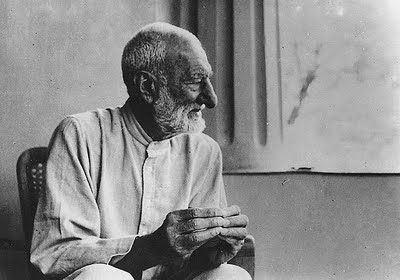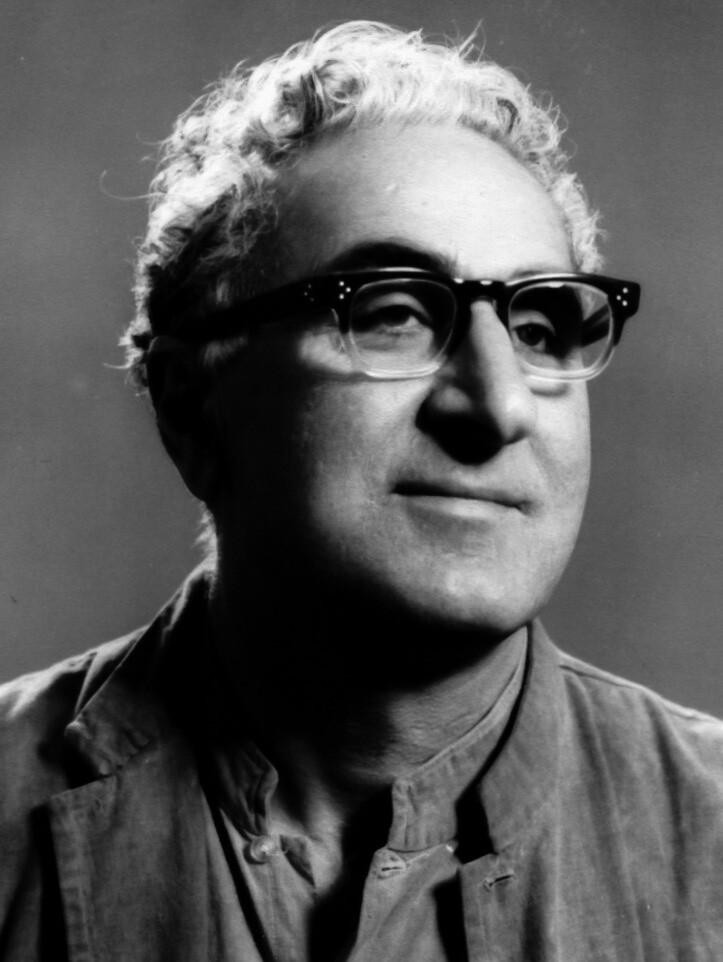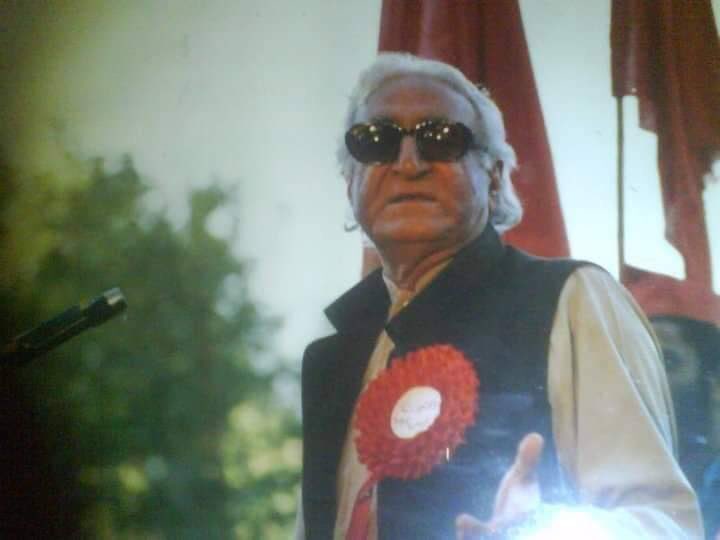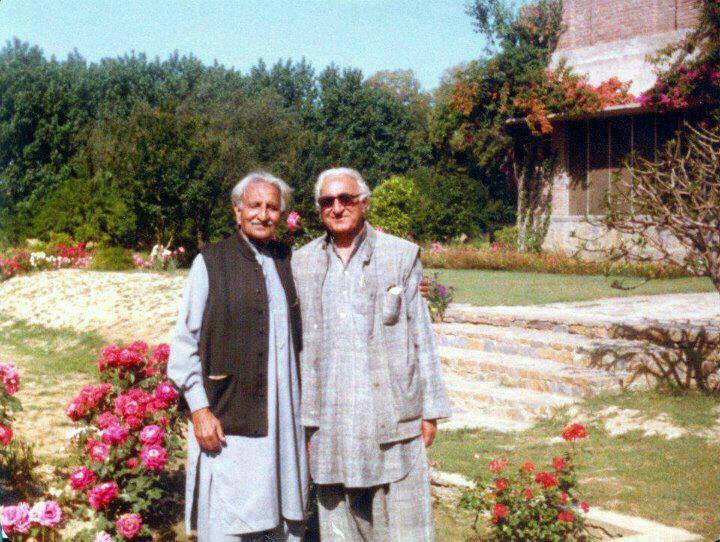Awami National Party (ANP) is a political party and movement, which carries forward the legacy of Khan Abdul Ghaffar Khan. ANP’s values are grounded in peace, democracy and progress. ANP’s struggle originates in the anti-colonial, reformist and emancipatory movement of Anjuman e Islah I Afaghina, founded by Khan Abdul Ghaffar Khan in 1921. Ever since, ANP has been at the forefront of democratic, federalist, pro-peace and pro-human rights politics in the province, country and the region.

Seeing the need for deep social and political reform in Pakhtunkhwa, Baacha Khan decide to embark upon a transformative and far-reaching project to improve the social, moral and education standards of the people of Pakhtunkhwa. To that end, he created a reform society called Anjuman e Islaah e Afaaghanah or Afghan Reform Society. This reform project involved many far-reaching strands: Azad Maktab (Independent Schools) for promoting literacy and education among Pashtuns, specially Pashtun women. The society also opened other reform organizations like the Peasants Society (Anjuman e Zamindaran) and the Youth Society (Pashtun Jirga). At the same time, the first Pashto monthly magazine in Pakhtunkhwa, Pakhtun, was also started to increase awareness and spread the message of reform and self-empowerment. With the passage of time and the changing situation in the subcontinent, and the struggle against British colonialism and imperialism, the Reform Society transformed into a potent political and social force representing the people of Pakhtunkhwa.
With the changing political situation in the subcontinent and the intensification of the anti-colonial and anti-imperial struggle against the British occupation, the Reform Society transformed into a political and social movement by the name of Servants of God. With a deep felt abhorence to violence, Baacha Khan organized Khudai Khidmatgars as non-violent and voluntary organization of the ordinary masses fighting for independence and end of British colonial rule. They dedicated themselves to selfless service of the people, constant and unending struggle against injustices, humanism and equality, civil disobedience, and eradication of backward and damaging traditions in their homelands.
The Qissa Khwani Massacre of 23rd April, 1930 was a seminal moment in the history of Khudai Khidmatgars, Pakhtunkhwa and the anti-British colonial struggle. On this day, a peaceful, unarmed and non-violent assembly of Khudai Khidmatgars and other political activists of Pakhtunkhwa was arranged at the old and historic Qissa Khwani Bazaar in the heart of Peshawar. There demands were simple and just: independence, self-government and end to British colonial occupation. The colonial British Army opened fire on the peaceful protesters and activists and killed 400 of them. This event put forth to the whole world the brutal and racist nature of British occupation and the justified and valiant struggle of Khudai Khitmatgars for independence and justice.

The Khudai Khitmatgar movement participated fully and valiantly in the struggle to end British rule in subcontinent. The British continued to use their oppressive and colonial tacticts to crush the spirit of independence among Pashtuns. These included torture, mass jailing, confiscation of property as well as other attrocities such as the Takkar Massacre and the Hatikhel Massacre. But nothing could daunt the valiants volunteers and activists of Khudai Khitmatgars who continued to remain steadfast in their struggle and never gave an inch to the forces of occupation. The role and contribution of Khudai Khitmatgars movement in the end of British occupation and independence of subcontinent deserves a place of pride in the history and annals of the anti-colonial and anti-imperialism movements of the 20th century.
After the partition and independence, the Khudai Khidmatgar movement adopted three fundamental planks of it's political struggle: 1) autonomy, self-government and empowerment of Pashtuns as a political, social and economic whole and 2) constitutionalism, parliamentary democracy and federalism in Pakistan and 3) empowerment of the downtrodden, workers, peasants and oppressed nations and redistribution of land, wealth and power to them for their socio-economic uplift. to that end, Khudai Khitmatgards formed a braod-based, progressive, federalist and democratic alliance between all the progressive and democratic parties in the country:
The goal of this alliance was constitutional self-goverment for Pakistan, redistribution of power and land to the downtrodden and oppressed nations and conducting an independent foreign policy free of neo-colonial and neo-imperial influence. The alliance was also dedicated to ending the oppressive and anti-national One Unite Scheme and establish provinces on national-linguistic basis. Seeing that this alliance would sweep the next (and first) democratic elections in Pakistan, the military regime of General Ayub Khan abrogated the constitution, imposed martial law, banned all political parties and jailed all the progressive and democratic leadership of the country.

The next 14 years were a dark period for progressive and democratic forces in this country. In 1965, all the forces combined together to support Fatimah Jinnah, on a platform of federal parliamentary democracy and adult franchise, against the military dictator General Ayub Khan. Through unprecedented rigging, intimidation and manipulation, the military dictator was able to defeat Fatimah Jinnah and continue his unconstitutional usurpation of power.
After the fall of Ayub Khan's regime and the independence of Bangladesh, there was a need for a democratic constitution for the country to be drawn up. The Constituent Assembly was tasked to draw up the constitution. NAP's Abdul Wali Khan, as the leader of the opposition, played a vital role in the constitution making progress. Finally, a constitution was agreed and adopted by the Constituent Assembly. This constitution, achieved through NAP and Abdul Wali Khan's efforts, was parliamentary, democratic and federal. It remains the only constitutional document freely adopted by the people of Pakistan.
During Zulfikar Ali Bhutto's government, NAP was banned on false and trumped-up allegations and it's leaders were jailed. During the military regime of Zia-ul-Haq, ANP under the leadership of Abdul Wali Khan, joined the Movement for the Restoration of Democracy (MRD) to struggle for the revival of democracy and restoration of the constitution. during this struggle, many leaders of ANP, including Asfandyar Wali Khan, spend years in jail. This struggle succeeded when military rule ended in 1988 and a democratic government came into power. Throughout the decade of 1990s, ANP continued to support democracy in Pakistan and to demand provincial autonomy, including the right of Pakhtuns over their water, electricity and other natural resources. This struggle continued after the imposition of the fourth military dictatorship in Pakistan by General Musharraf in October, 1999. ANP struggle was vindicated with the 18th Amendment to the Constitution of Pakistan which finally achieved the long-standing demand of Pakhtuns of giving a proper name (Khyber Pakhtunkhwa) to their provinces and strengthening provincial autonomy by abolishing the concurrent legislative list. ANP's provincial government, from 2008 to 2013, ushered in transformative projects in the province in education, healthcare, language and culture and infrastructure developments (See Achievements).

The events of September 11, 2001 changed the world and our region in the most profound ways. The menace of terrorism fully attacked Pakhtunkhwa and our Pakhtun homeland. Terrorists targeted mosques, tribal leaders, civil society members, political party leaders, workers and activists, students, educational institutions like schools, colleges and universities and public places. This menace destroyed the economy, society and politics of Pakhtunkhwa and set back our development by years, if not decades. Awami National Party decided, from the very beginning, to stand up with full dedication, determination and will to the menace of terrorism. Against this menace, ANP sacrificed dozens and hundreds of it's leaders, workers, activists and sympathizers. ANP adopted and propagated the most clear and unambigous stance against the monster of terrorism and played a vital role in promoting a pro-peace discourse and agenda in Pakhtunkhwa and the country. ANP's struggle and role in defeating the menance of terrorism is recognized by everyone and is another glorious chapter in the party and movements' century old political history.
Abdul Ghaffar Khan was a luminary of the anti-colonial, anti-imperialist, pro-democracy and pro-peace movements of the 20th century. Through a strong belief in God, faith in Islam as a progressive force for good, empowerment of the downtrodden and women, emancipation of the oppressed and needy and uplift of all sections and sectors of the society and the community, he struggled to transform the Pakhtun nation and the region from violence, war and backwardness to enlightenment, development and prosperity.

Abdul Ghaffar Khan was born in Utmanzai, Charsadda on 20th January, 1990 to a respectable local family. He recieved his foundational education at regional education institutions and was involved from an early age in the promotion of education as a tool for emancipation. Ghaffar Khan was influenced by the anti-British resistance movement of Haji Sahib Turangzai which had a foundational influence on his social and political outlook. He understood that social reform, educational development and political resistance are all indispensible towards building a civilized and prosperous future for Pakhtuns.
Abdul Ghaffar Khan's social and reformist tendencies led him to activism at an early age. Starting from basic social activities in his hometown, Abdul Ghaffar Khan established the Anjuman e Islah e Afaghinah (Society for Reform of Afghans). This society was dedicated to social uplift, educational reform and empowerment of the people and an increase in awareness about their rights and freedoms. Under the tetulage of this society various organs were established: 1. Pashtun magazine: to raise awarness, journalism, literary and cultural activities; 2. Youth Assembly: to provide a platform for the youth to organize and advocate for their rights and issues; 3. Azad Schools: to promote literacy and education as a means of social empowerment of all classes of the society and various other social programs for discipline, service and community uplift

It was inevitable that a person as socially aware as Abdul Ghaffar Khan would be drawn to the political struggle of his times. By the late 1920s, the resistance movements against the British colonialism and imperliasm was gathering steam and widespeard public support. The British had occupied Pakhtunkhwa region against the wishes of the people of Pakhtunkhwa and had imposed an oppressive and dictatorial system of draconian laws and regulations on the people. Mass jailings, evictions from homes. confiscations of property and other draconian measures were frequently employed against the common people. Furthermore, any chance for economic and social imporvment such as educaiton and literacy was shut down as a threat to the colonial occupation system.
To organize the people of Pakhtunkhwa around a common agenda of anti-occupation and anti-colonial struggle, Abdul Ghaffar Khan founded the Khudai Khidmatgar organization. The goals of the organization were threefold: 1) improve the level of social awareness of the Pakhtuns through education, literacy and community service, 2) wage a steadfast non-violent struggle against the British colonial and imperialist system and 3) contribute to the independence movememnt in subcontinent with full force and determination.
From 1929 to 1947, Khudai Khitmatgars participated in the independene struggle of the subcontinent. Throughout this time they faced the worst and most draconian oppression by the British colonial authorities. But no amount of oppression, including horrible massacres and mass punishments, could weaken the resolve of the Khudai Khidmatgar movement. At the same time, the Abdul Ghaffar Khan and the Khudai Khitmatgar movement also participated in the constitutional and parliamentary struggle for the rights and freedoms of the people and strove to provide relief, services and development to the people of Pakhtunkhwa through those means. The British supported various reactionary and collaborationist elements against the non-violent and progressive Khudai Khitmatgar movement but Abdul Ghaffar Khan and the Khudai Khitmatgar movement retained the support and sympathies of the vast majority of Pakhtuns. The end of British colonial rule was a personal triumph of Abdul Ghaffar Khan and a collective triump of Pakhtuns and all the people of subcontinent.

Despite his differences with the people who took over Pakistan after the end of British rule, which were often the same reactionary and anti-progress people who supported the British colonial authorities, Abdul Ghaffar Khan pledge allegiance to the new country and undertook to work for peace, development, equality and democracy with a positive and forward-looking approach. Alas, he found no reciprocity from the oppressive political, feudal and military elites of Pakistan. Instead of striving for a progressive country with consituttional supremacy, parliamentary democrayc, adult franchise and federal autonomy, the Pakistani elites sought to suppress every progressive, democratic and pro-parliamentary voice and political force in the country. Perhaps the most egregious example of this oppression was the Babrha Massacre when the collaorationist regime of Abdul Qayyum Khan fired upon and massacred hundreds of innocent Pakhtuns and Khduai Khitmatgars who had gathered to demand rights, equality and development. This massacre was, in no way, less than the various massacres perpetrated by the old British colonial regime on Pakhtuns. Instead of accenpting Abdul Ghaffar Khan's hand of peace and friendship, the Pakistani elites responded with arresting him and jailing him from 1948 to 1954. During this time, hundreds of innocent workers and activists of the Khudai Khitmagar movememnts were arrested and imprisoned without trial or due process of law.
Despite this Baacha Khan continued to have a progressive and democratic vision for Pakhtuns and the country as a whole. He always stood for a participatory political system which was accountable and answerable to the people. He wanted redistribution of wealth and power to the downtrodden adn he wanted cultural and linguistic autonomy for the provinces of Pakistan. He vociferously ooposed the anti-national, anti-auonomy and anti-dmeocratic One Unit scheme which usurped the right of autonomous self-goverment of the provinces of Pakistan and repalced them with an oppressive centralized system. For this 'crime, he was arrested again during the martial law regime in 1958 and was exiled from the country in 1964. To describe his treatment in Pakistan, he famously said:
"I had to go to prison many a time in the days of the Britishers. Although we were at loggerheads with them, yet their treatment was to some extent tolerant and polite. But the treatment which was meted out to me in this Islamic state of ours was such that I would not even like to mention it to you."

After his forced exile, he took up residence in Afghanistan. From Afghanistan, he continued to advocate for regional peace and an end to destructive wars. He promoted peace and reconciliation between Afghanistan and Pakistan and always sought to made his good offices available for any peace offering. He was nominated as Amnestry International's 'Prisoner of Conscience' in 1962, was awarded Indian's Bharat Ratna award and was nominate for the Nobel Peace Prize in 1984. He died in Peshawar in 1988. His life was full of difficulties, trials, tribulations, jails and oppression but he faced all of them with great steadfastness, inspired by a solemn desire to see the day when the Pakhtun nation will be a peaceful, developed and prospoerous nation.

Khan Abdul Wali Khan's life and political journey spanned the whole of the 20th century and his ideological struggles included the anti-colonial and anti-imperial struggle against British occupation, the struggle for constitutionalism, democracy, progress and parliamentary supremacy in Pakistan and the rights and autonomy of Pakhtuns and Pakhtunkhwa.
Khan Abdul Wali Khan, the son of Khan Abdul Ghaffar Khan, was born on 11 January 1917 in Charsadda region of Pakhtunkhwa. He was educated at Azad Islami School and at Dehra Dun. Because he was brought up in a milliue of national struggle and ideological struggle, he was drawn to politics at an early age. He joined the Khudai Khitmatgar movement at an early age and became a dedicated activist and worker. The Khudai Khitmatgar movement was dedicated to ending the British occupation of the subcontinent and Pakhtunkhwa. By 1940s, the anti-colonial and anti-imperialist independence movement had become the foremost political movement in the region. During the World War II, the independence movement embarked upon the Quit India Movement which firmyl demanded immediate independence and immediate withdrawal of the British occupation authorities. Abdul Wali Khan participated actively in this movement and, for this, he was arrested and imprisoned by the British authorities. Abdul Wali Khan's initial political struggles were an indication of his long, principled and ideological political career after partition and independence in 1947.

After partition and independence in 1947, Abdul Wali Khan dedicated his life to a politics of constitutional supremacy, parliamentary democracy, progressive values and the rights and autonomy for Pakhtunkhwa. Pakistan's fuedal, industrial and military elites wanted to retain the power that they had inherited from the British colonial system and so they were determined to oppress and squash any progressive and popular mass political movement in the country. As punishment for his dedicated and principled political struggle, Khan Abdul Wali Khan was imprisoned, along with hundreds of other pro-democracy political workers and activists, in 1948 and jailed for 5 years.
Upon his release, he participated in the formation of National Awami Party (NAP), which was a grand alliance of all the progressive, democratic and nationalist political parties in the country and whose aim was universal franchise, parliamentary democracy and federalism. Khan Abdul Wali Khan was also opposed to the pro-Western foreign policy of Pakistan's extractive elite and wanted instead a progressive foreign policy based on non-alignment among the global power blocs. NAP became a major political force and it's popularity and public prestige unnerved Pakistan's unelected feudal-military elite. They conspired to abrogate the constitution, suspend civil and political liberties and impose martial law in the country in 1958. Abdul Wali Khan was once again arrested and imprisoned but the pro-democracy activities and struggle continued. The pro-democracy forces joined together to opposee the illegal military regime and Abdul Wali Khan particiapted whole heartedly in that movement. After Ayub Khan' downfall and the independence of Bangladesh, Abdul Wali Khan emerged as the main leader of the progressive and democratic forces in the country and became the President of National Awami Party.

The independence of Bangladesh changed the political, geographic and constitutional realities of the country. The country needed a constitution to act as the social compact between the state and citizens and the federating units. To that end, the Constituent Assembly deliberated and negotiated for months. Through the leadership of Abdul Wali Khan and his skilled negotiations with various stakeholders, a constitutional was finally agreed upon and adopted. This constitution guaranteed fundamental civil rights, parliamentary democracy and provincial autonomy and was a great political and moral victory for Abdul Wali Khan and NAP.
National Awami Party formed coalition provincial governments in NWFP (with Jamiat e Ulema e Islam) and in Balochistan. Their independent and progressive policies were not acceptable to the central government which undemocratically dismissed the two provincial governments. Abdul Wali Khan was strenously opposed to the authoritarian and centralizing tendencies of the government of the time and wanted it to adhere to the promises it made at the time of the adoption of the 1973 constitution. The central government arrested Abdul Wali Khan and started the infamous and draconian Hyderabad Trial against NAP leadership which was proscribed and banned.
During the dictatorship of General Zia ul Haq, NDP (NAP had been reconstituted as NDP) and Abdul Wali Khan participated enthusiastically and determinedly in the Movement for the Restoration of Democracy (MRD). MRD was able to sustain great pressure on the dictatorial regime which led to a democratic dispensation in 1988. Wali Khan remained steadfastly in support of the democratic dispensation.

After his retirement from frontline politics in 1990, Khan Abdul Wali Khan assumed the role of an elder Pakhtun statesman and continued to share his advice and counsel with the political leadership of the province and the country. Wali Khan continued to have his voice and stance known on vital Pakhtun issues like Kalabagh Dam and the renaming of NWFP to Pakhtunkhwa. Abdul Wali Khan was also an intellectul and wrote two books: Khudai Khitmatgar, a history of the movement and Facts are Facts, a historic timeline of the events that led to the partition of 1947.
Khan Abdul Wali Khan always stood for democracy, development and the just rights of Pakhtuns and Pakhtunkhwa. That was his life's goal and his life's mission. We at ANP are committed to continue our struggle to achieve those high and lofty goals and dreams.
